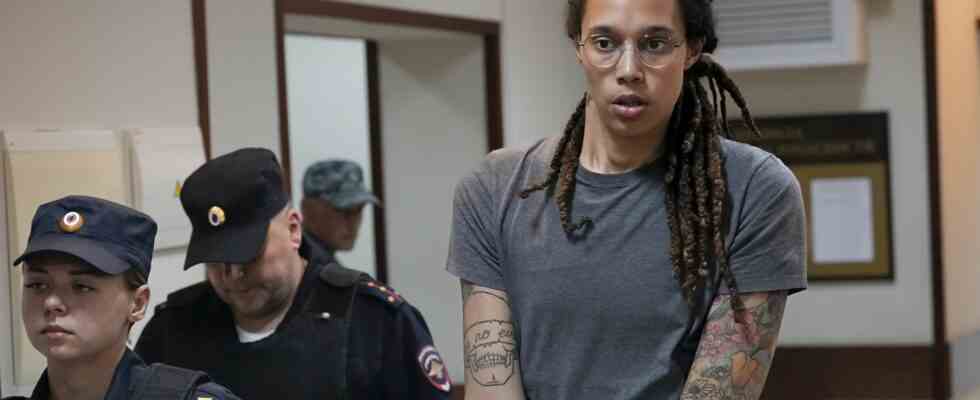Status: 11/18/2022 6:44 p.m
The US basketball player Griner is to serve nine years in a Russian women’s prison camp. Prison activist Romanowa believes that it will be twice as difficult for her there.
“Land of the penal camps” – that’s what Mordovia is called in the vernacular. There are also many women’s prison camps in the republic southeast of Moscow, where dozens of gulags were set up during Soviet times. Penal camps that are still in use today. The Pussy Riot activist Tolokonnikova and the lawyer from Khodorkovsky’s Yukos concern, Bakhmina, served their sentences here.
US basketball player Brittney Griner is now in one of the women’s camps, called IK-2. Life in the penal colony itself requires a lot of strength and stamina. Griner’s attorneys say she’s trying to adjust to her new surroundings, staying strong.
Romanowa: Expect harassment at any time
But that, says Olga Romanowa of the aid organization Russia behind bars, is easier said than done. There are worse prison camps than IK-2 – but it will be even harder for the top athlete than for others: “The first problem – she is a self-confessed lesbian. The second problem – she is American. The third problem – she is dark-skinned “, says Romanova.
She not only had to expect harassment from the guards, but also from her fellow inmates. At any time of the day or night, because there is no privacy in the barracks. Neither in the shared bedroom, nor where the sinks and toilets are. Even showering is only possible together. On command. And even that is considered a luxury: “To wash yourself every day – that’s not America there,” explains Romanowa.
What matters are cigarettes
Everyday warehouse life is hard and strictly scheduled. Up at 6 a.m., bed rest at 10 p.m. Most of the time there is work. Usually in the sewing workshop on the same premises. And the IK-2 penal camp, says Romanova, is notorious for making prisoners work more hours than usual: “They are forced to sign papers saying they forego weekends and vacations and almost dream of working overtime!”
The reward for it – small. But another currency is decisive anyway: “In all camps, the prices of goods and services are measured in cigarettes. Cigarettes are a kind of ‘prison currency’ in Russia.”
Strict rules, poor food
Things that the US basketball player now has to learn without being able to really communicate. Because speaking and phoning in the prison camp is only allowed in one language – Russian.
Violations of the rules, no matter how small and insignificant, are punished: “Women are punished by having hot water turned off, packages or visits being banned,” says Romanowa.
Diet is also problematic for the top athlete: sweetened tea, water-based barley porridge, some bread and margarine for breakfast. “Then for lunch there’s barley or potato soup or barley and potato soup. With it, potatoes with a fishtail or with a patty, but it’s almost entirely bread.” And in the evening again porridge and bread.
The prison camp IK-2 in the city of Yavas, where Brittney Griner is being held.
Image: REUTERS
Will Griner be traded for an Arms Dealer?
Nevertheless, the camp management will try to keep Griner reasonably fit. Even if the camp is known for its poor medical care. “The warehouse manager will be aware that it can be replaced at any time and should therefore be more or less in shape.”
In fact, there are increasing indications that negotiations are underway to exchange Griner for the arms dealer Viktor But, who has been convicted in the USA. However, Russian Deputy Foreign Minister Sergei Ryabkov hinted that a common denominator had not yet been found.
For the American, this means that she can only hope that she will not have to serve out the extremely harsh sentence that has been criticized internationally. She was sentenced to nine years in prison for possession of a small amount of cannabis oil in cartridges for e-cigarettes.
US basketball player Griner in a prison camp in Mordovia
Christina Nagel, ARD Moscow, 11/18/2022 5:51 p.m

